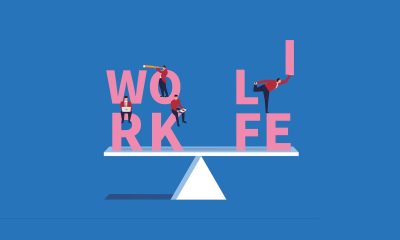Side Hustles
I Turned My Passion Into a Nonprofit Side Hustle — Here Are 3 Insights I’ve Learned in the Process. I’m a leader at a multi-billion-dollar corporation, and I started a nonprofit with a fellow grad and our spouses in the second half of my career. Here’s why seasoned leaders like myself are turning to the startup landscape to have a social impact.

Entrepreneur
About five years ago, I found myself back at Harvard with some of my fellow MBA grads, engaging in discussions with a very different lens than my 24-year-old self would have had.
The exercise was part of a program a fellow grad and I co-created, in partnership with the university, to bring together alumni seeking to have greater impact and purpose in the second half of their careers.
Research shows 70% of employees say their personal sense of purpose is defined by their work — with Gen Xers holding 61% of leadership roles globally, many seasoned leaders are contemplating how to find deeper meaning within the framework of longer careers and lifespans.
While I can attest that purpose can be found in a corporate job, there are also ways to expand your impact outside of work, such as starting a nonprofit or supporting a social venture. Here are three insights I’ve gained from starting a nonprofit side hustle in the second half of my career.
Related: 5 Compelling Reasons Why Every Entrepreneur Should Consider Starting a Nonprofit Organization
1. Focus on what most speaks to your heart
Back on campus, I was struck by something Thomas DeLong, a renowned Harvard professor, said to our group: “If you don’t know what to do with the back half of your life, run towards the thing that most breaks your heart.”
As fulfilling as our corporate ventures can be, they won’t always solve the societal problems we feel compelled to fix after life has kicked us around a little. If you’re thinking of starting or joining a purpose-led venture, the first step is to identify the cause that most speaks to your heart — for me that was youth mental health.
Getting clear on what fulfills you personally also helps align you professionally with the people who share your passion and drive. Shortly after heeding DeLong’s advice, a fellow grad and I co-founded The Goodness Web together with our spouses. The nonprofit focuses on activating leaders to invest in solutions for youth mental health.
Having senior leaders with varying backgrounds aligned on supporting youth mental health has been a powerful combination that has also brought perspective to my corporate career. The more senior you become at an organization, the more distant you often are from the front lines of action. From editing newsletters to putting together PowerPoint presentations, joining a social venture can be a humble reminder of how much work it takes to complete tasks when you’re not in a position to outsource them.
Considering a staggering 79% of employees report quitting due to inadequate appreciation from their managers, this perspective shift can benefit both your career and your social venture.
Related: Purpose-Driven Companies Grow 3 Times Faster — So Here’s How to Become One Without Sacrificing Profit.
2. Leverage strengths from your ‘second curve’
We often hear about Gen Z and millennials starting values-based ventures, but in many ways, older generations are uniquely positioned to have a social impact. In his book, Strength to Strength: Finding Success, Happiness and Deep Purpose in the Second Half of Life, Arthur Brooks talks about how the technical skills and functional knowledge we develop to create success in the first half of our careers, change as leaders approach the “second curve.”
While research has shown some skill sets decline as we age, aptitudes such as wisdom, teaching and sharing ideas tend to increase. Leaders wanting to start a social venture in the second half of their careers, should look to leverage these evolved strengths, along with the networks they’ve established over time.
The experience I’ve gained over decades of working in a multi-billion-dollar corporation, for instance, has allowed me the vantage point to see where our nonprofit can strategically invest, scale systems and change initiatives across the youth mental health landscape.
Likewise, the vast network my co-founders and I have built over the years proved critical in establishing our first 100 founding families. The collective power of that network allowed us to grant $6.1 million to youth mental health organizations in our launch year alone. By leveraging our robust life experiences, we can often offer a unique lens into the best way to solve problems, which can accelerate progress at scale.
Related: When It Makes Sense to Turn a Passion Project Into a Nonprofit
3. Be open to expanding your connections
It’s not uncommon for our worlds to get smaller as we age — mobility and travel can become restricted, as can our ability to participate in our communities. A meta-analysis of 277 studies on age-related social changes found friendship networks expand during adolescence and shrink during later adulthood.
When you’re looking to create social impact later in life, however, it’s important to be open to expanding your connections. Reaching out to others who are passionate about your cause is not only the best way to raise necessary funds, but it’s foundational for building a sense of community and a shared vision for your organization.
It can also be helpful to connect with other startup founders and organizations. One of the first things I did when I co-founded my nonprofit was join YPO, a global leadership community, made up of entrepreneurial thinkers who are inspired to make a difference. The sheer force of being around a group of creative and experienced professionals who are driven to have a positive impact has become a great resource and source of inspiration.
Not only can expanding our connections benefit our ventures, but they can also benefit us as we age: Research has shown people who participate in community activities and have a strong sense of social connection have a lower risk of developing mental health issues such as anxiety and depression.
As we become more seasoned in our lives and careers, we have a unique opportunity to share our learnings and leverage our experiences in the service of others. When we do, we not only accelerate the pace of change, but also evolve into better leaders and more fulfilled people.
Read the full article here

-

 Passive Income6 days ago
Passive Income6 days agoThe One Microsoft Design Tool Business Owners Shouldn’t Miss
-

 Side Hustles4 days ago
Side Hustles4 days agoThe DOJ Reportedly Wants Google to Sell Its Chrome Browser
-

 Side Hustles4 days ago
Side Hustles4 days agoHow to Create a Unique Value Proposition (With Tips & Examples)
-

 Investing5 days ago
Investing5 days agoThis Founder Turned a Hangover Cure into Millions
-

 Investing6 days ago
Investing6 days agoYour Firsthand Experiences Shape the Way You Run Your Business — Here’s How Mine Shaped Me
-

 Investing3 days ago
Investing3 days agoAre You Missing These Hidden Warning Signs When Hiring?
-

 Side Hustles6 days ago
Side Hustles6 days agoHow These 5 Founders Changed Franchising Forever
-

 Side Hustles5 days ago
Side Hustles5 days agoHow One Entrepreneur Started a $700 Million Nuclear Startup


















